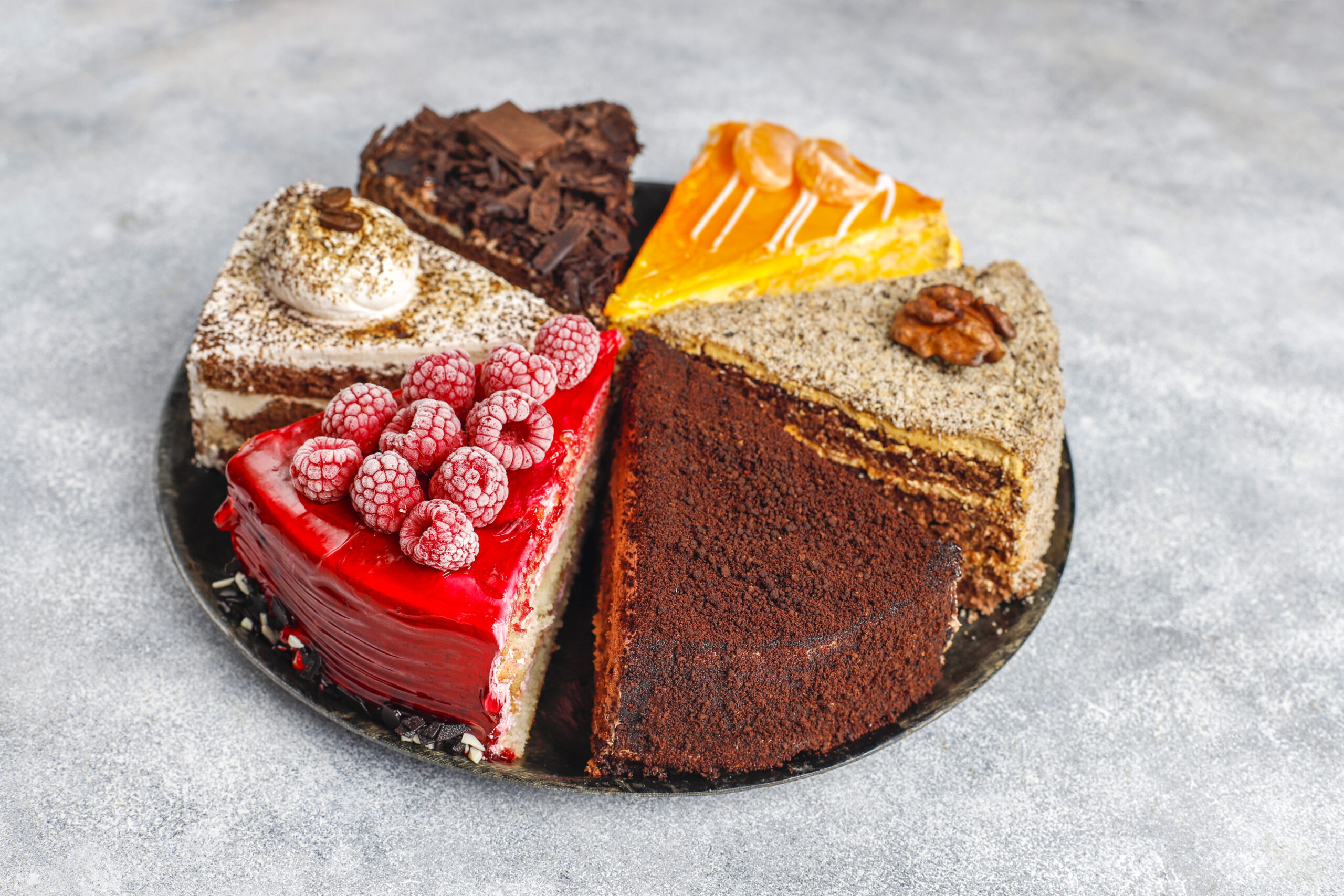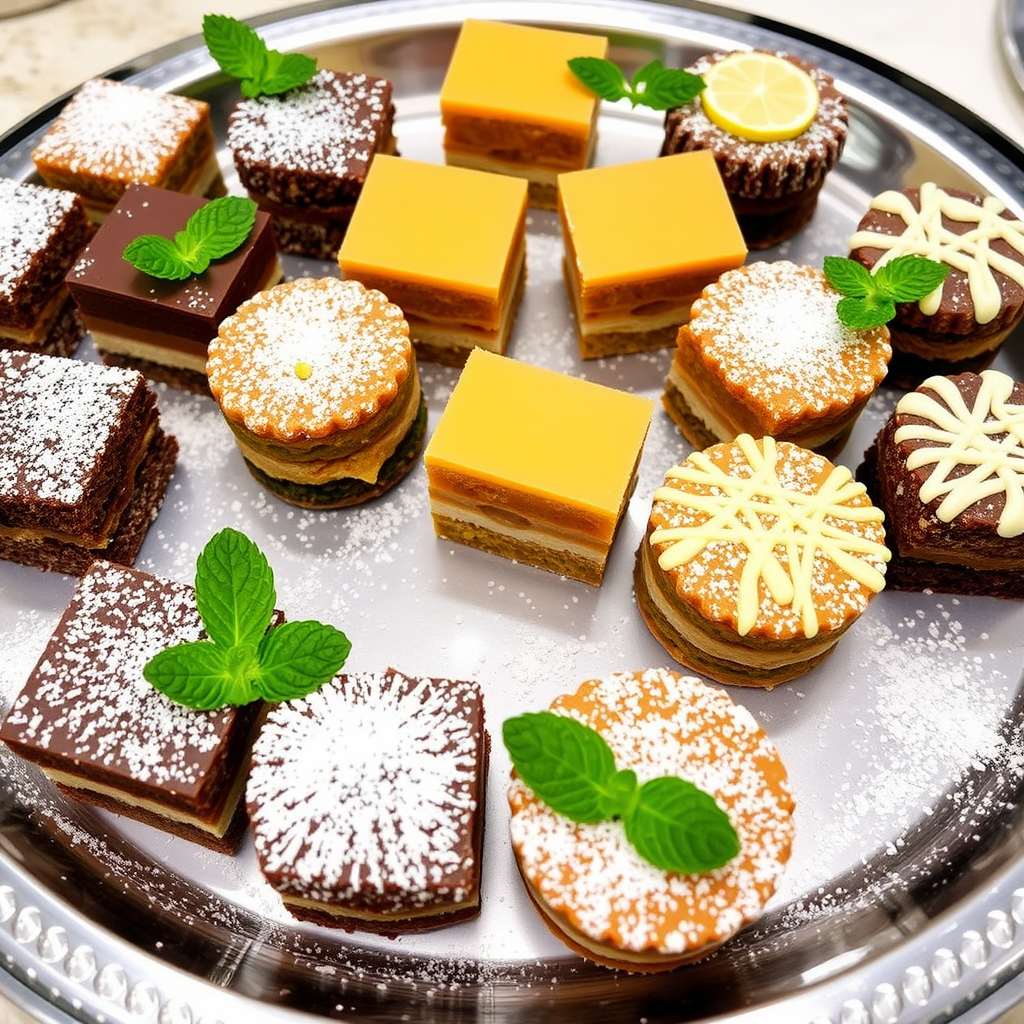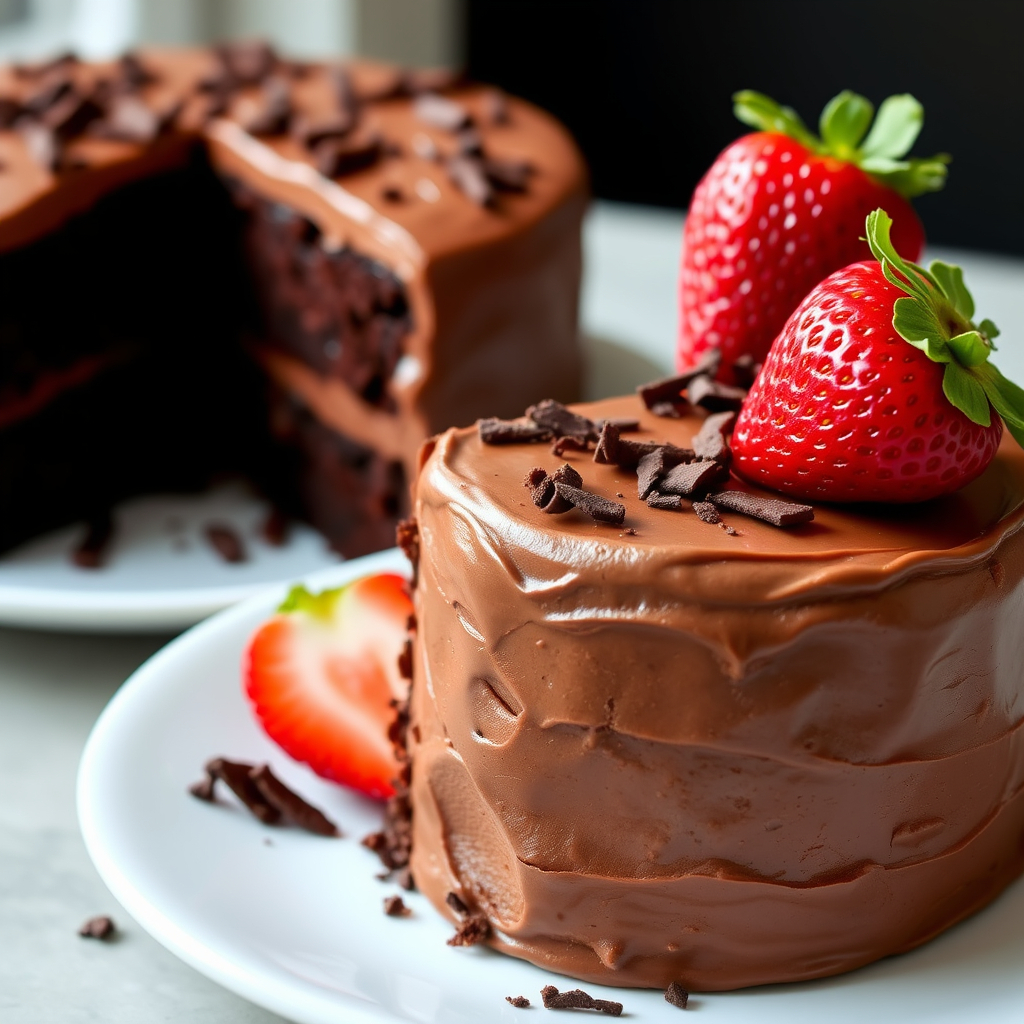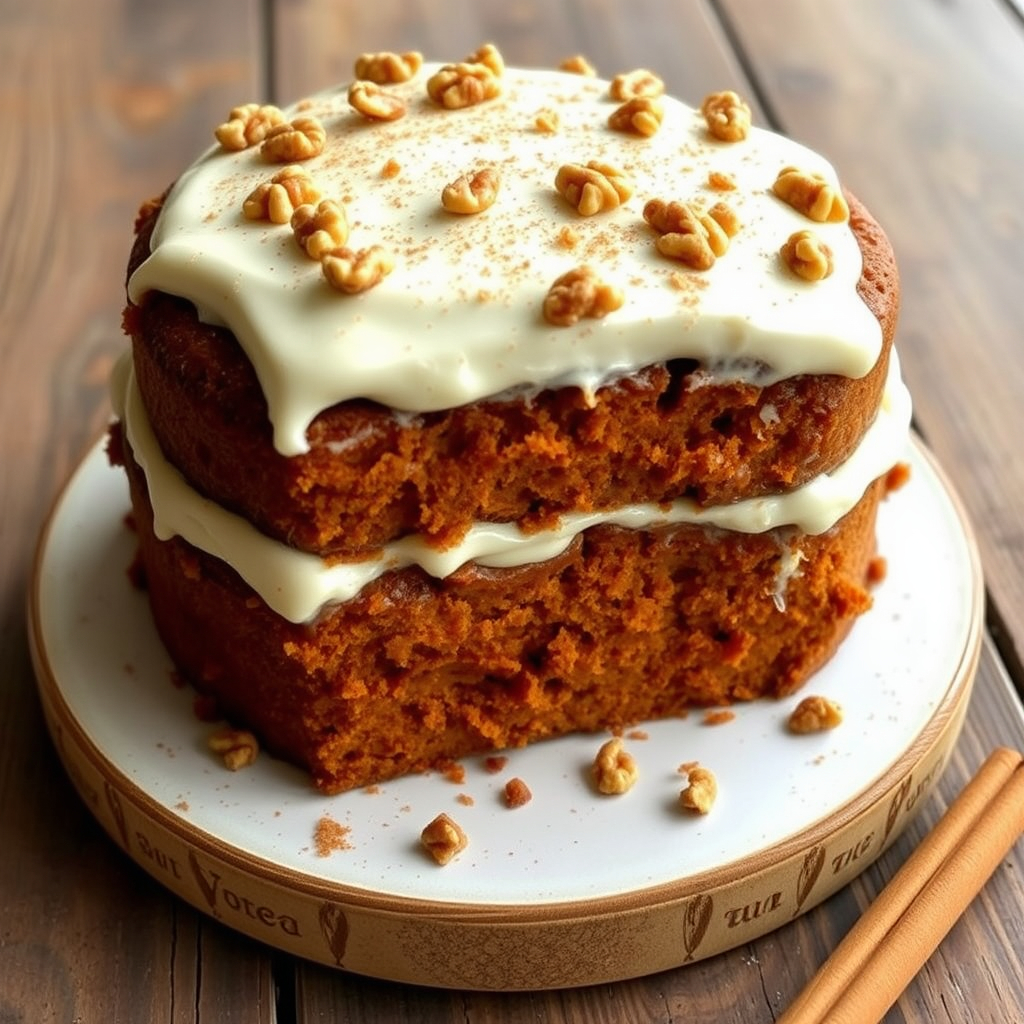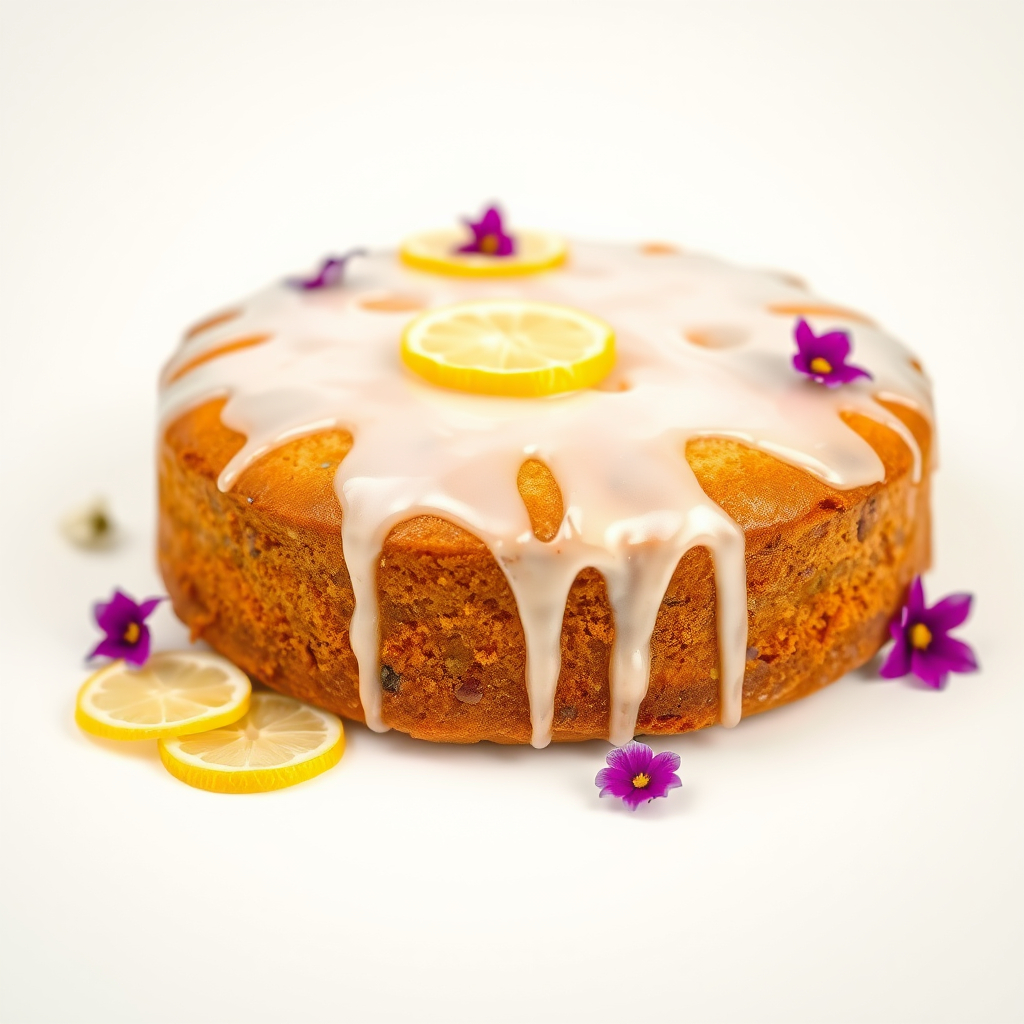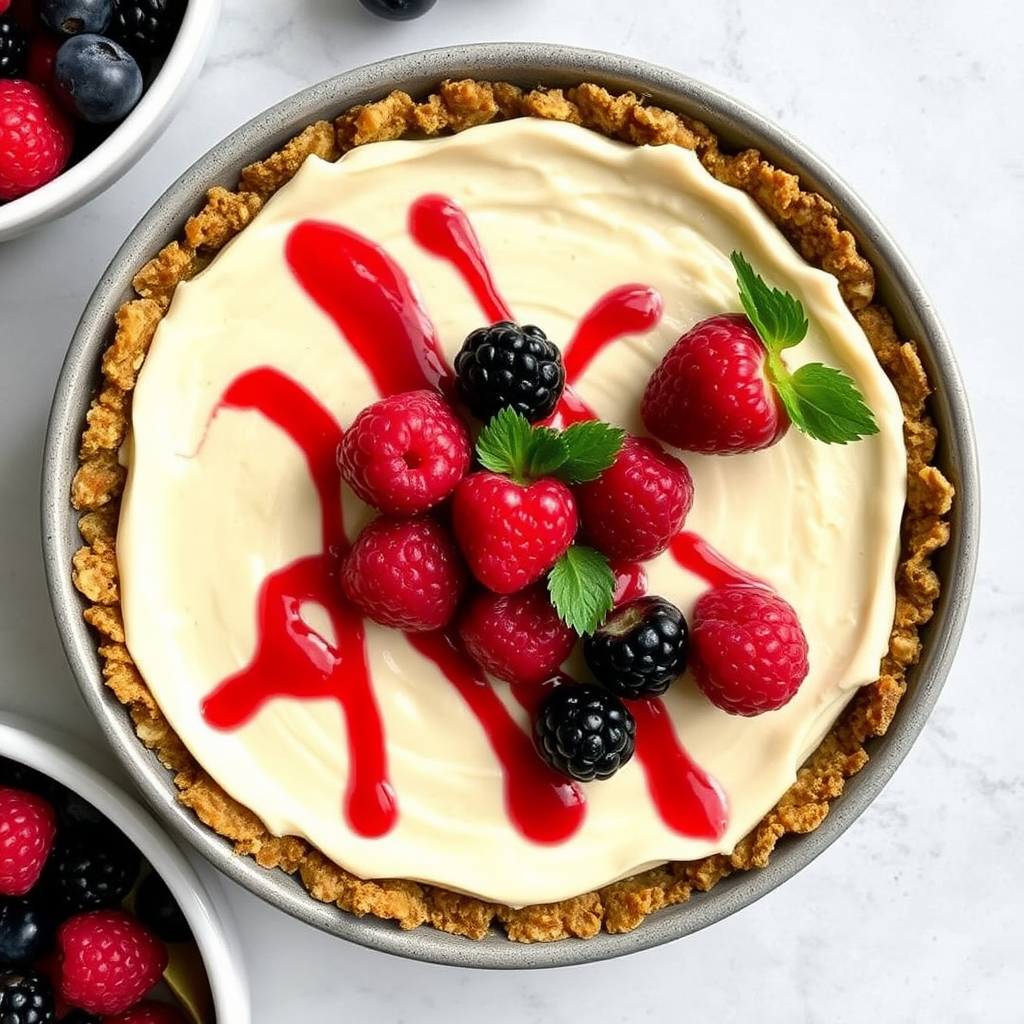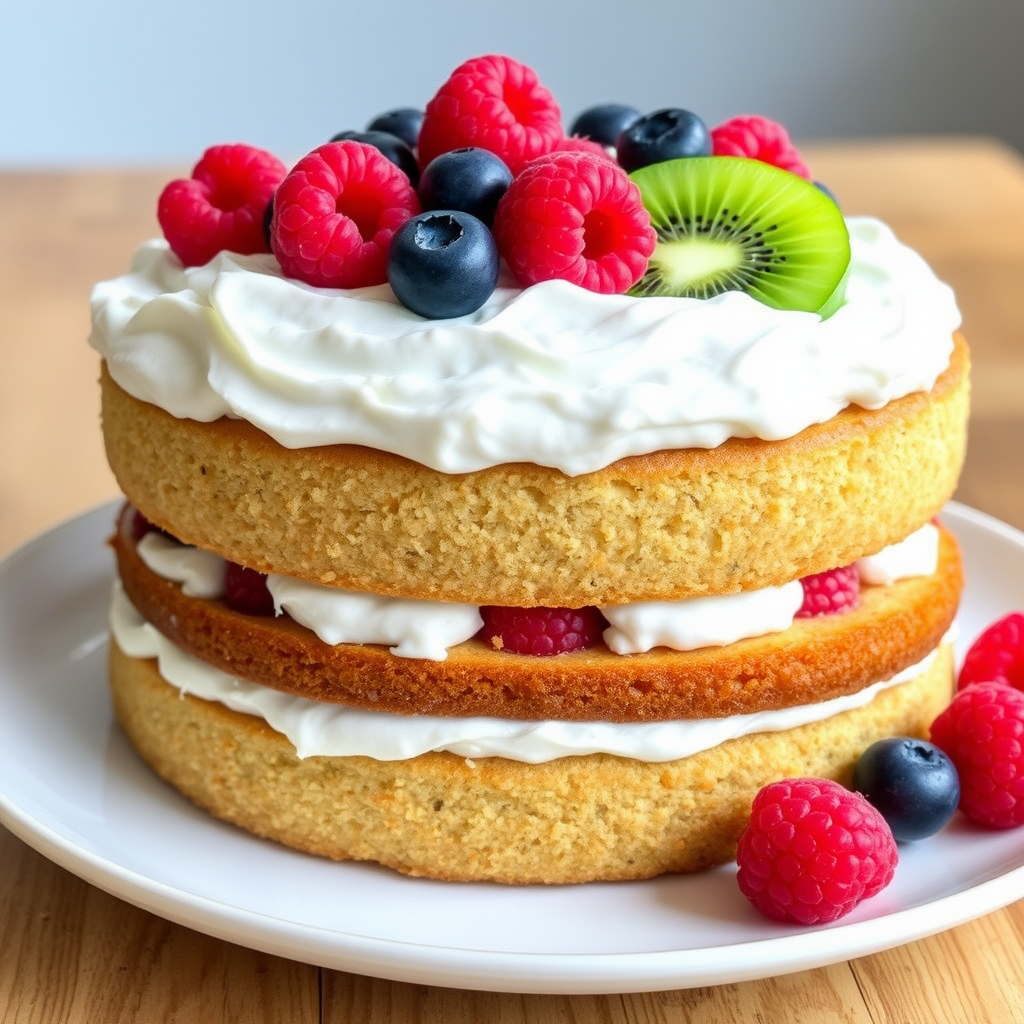Table of Contents
ToggleIntroduction to Vegan Cakes
Vegan cakes are delicious alternatives to traditional cakes, made without any animal-derived ingredients. They are perfect for people adhering to plant-based diets or seeking ethical and environmentally friendly dessert options. But what cakes are suitable for vegans? The answer lies in creative recipes that replace eggs, dairy, and other animal products with plant-based substitutes, resulting in treats that are just as moist, flavorful, and satisfying as their non-vegan counterparts.
With a growing focus on sustainability and health-conscious living, vegan cakes are becoming a popular choice for birthdays, celebrations, and everyday indulgence. They highlight the versatility of plant-based baking while ensuring no compromise on taste or texture. Whether it’s a classic chocolate cake or a tangy lemon drizzle, vegan cakes offer something for everyone.
What Makes a Cake Vegan?
When asking, what cakes are suitable for vegans, the answer lies in cakes made entirely without animal-derived ingredients. Vegan cakes replace traditional components like eggs, dairy milk, butter, or honey with plant-based alternatives to create desserts that are both ethical and delicious.
Key Ingredients in Vegan Cakes
To make a vegan cake, the following ingredients are commonly used:
- Plant-Based Milk:
- Almond, soy, oat, or coconut milk can replace dairy milk, adding creaminess and moisture to the batter.
- Egg Substitutes:
- Replace eggs with these plant-based alternatives:
- Flaxseed Meal or Chia Seeds: Mix 1 tablespoon with 3 tablespoons of water to replace one egg.
- Applesauce or Mashed Bananas: Use ¼ cup to substitute for one egg, adding natural sweetness and moisture.
- Commercial Egg Replacers: Convenient and reliable for baking.
- Replace eggs with these plant-based alternatives:
- Dairy-Free Butter or Oils:
- Use coconut oil, margarine, or vegan butter spreads to replicate the richness and texture of traditional butter.
- Sweeteners:
- Opt for certified vegan sugar (processed without bone char), agave syrup, maple syrup, or coconut sugar to ensure the sweetener aligns with vegan principles.
Common Non-Vegan Ingredients to Avoid
When creating vegan cakes, it’s essential to exclude the following ingredients:
- Eggs and Egg Whites:
- A traditional binding agent in cakes, easily replaced by plant-based substitutes.
- Dairy Milk, Cream, or Butter:
- Swap these for plant-based alternatives to keep the recipe vegan.
- Gelatin or Animal-Based Stabilizers:
- Used for texture in some desserts, but made from animal byproducts.
- Non-Vegan Sugar:
- In some regions, sugar is processed with bone char, making it unsuitable for vegans.
- Honey:
- A natural sweetener that vegans avoid as it is derived from bees.
Understanding what cakes are suitable for vegans helps you bake or choose desserts that meet ethical and dietary preferences. By using plant-based substitutes and avoiding non-vegan ingredients, you can create cakes that are not only delicious but also cruelty-free.
Popular Types of Vegan Cakes
Vegan cakes come in a variety of flavors and styles, offering something for every occasion. Here are some popular types of vegan cakes that prove plant-based baking can be both creative and delicious.
Classic Vegan Chocolate Cake
Rich, moist, and indulgent, the classic vegan chocolate cake is a crowd-pleaser. Made with cocoa powder, plant-based milk, and a simple egg substitute like applesauce or flaxseed meal, this cake achieves the perfect balance of flavor and texture. A vegan chocolate ganache or buttercream frosting completes this decadent treat.
Moist Vegan Carrot Cake
This cake is bursting with warm spices like cinnamon and nutmeg, complemented by finely shredded carrots for natural sweetness and moisture. Often paired with a tangy vegan cream cheese frosting, the moist vegan carrot cake is perfect for celebrations or casual gatherings.
Vegan Lemon Drizzle Cake
A light and zesty option, the vegan lemon drizzle cake is infused with fresh lemon juice and zest. The cake is finished with a simple glaze made from powdered sugar and lemon juice, creating a tangy, sweet topping that pairs perfectly with the tender crumb of the cake.
No-Bake Vegan Cheesecake
This innovative dessert skips the oven altogether. A nut-and-date crust forms the base, while the creamy filling consists of blended cashews, tofu, or coconut cream, sweetened with agave syrup or maple syrup. No-bake vegan cheesecakes can be flavored with vanilla, chocolate, or fruit for endless possibilities.
Gluten-Free and Vegan Cakes
For those with dietary restrictions, gluten-free and vegan cakes offer the best of both worlds. These cakes are often made with almond flour, coconut flour, or other gluten-free flours. Despite the absence of gluten, they remain moist and flavorful, making them suitable for everyone.
Each of these vegan cakes showcases how simple ingredients and creativity can produce desserts that are as satisfying as their traditional counterparts. Whether you’re in the mood for something rich, fruity, or allergen-friendly, vegan cakes deliver a guilt-free indulgence.
Baking Techniques for Vegan Cakes
Baking vegan cakes may seem tricky at first, but with the right techniques and ingredients, it becomes an enjoyable process. Below are essential tips for achieving perfect texture, flavor, and structure in your vegan cakes.
Egg Substitutes for Vegan Baking
Since eggs are a key ingredient in traditional baking, finding suitable vegan substitutes is crucial. These plant-based alternatives ensure the batter binds well while contributing to the cake’s texture and flavor:
- Flaxseed Meal:
- Mix 1 tablespoon of flaxseed meal with 3 tablespoons of water to create a gel-like mixture that works as a binding agent, replacing one egg.
- Applesauce or Mashed Banana:
- Use ¼ cup of applesauce or mashed banana as a substitute for one egg. These add natural sweetness and moisture to the batter, making them ideal for cakes like carrot or chocolate.
- Vinegar and Baking Soda:
- Combine 1 teaspoon of vinegar (apple cider or white) with 1 teaspoon of baking soda to mimic the leavening effect of eggs. This technique ensures your cakes rise beautifully.
Tips for Perfect Texture and Moisture
Achieving the ideal cake texture and moisture level is key to a successful vegan bake. Here are some practical tips to follow:
- Use Vinegar for Fluffiness:
- Vinegar reacts with baking soda to create air pockets, resulting in a light and fluffy cake. Add it to plant-based milk for an even tenderer crumb.
- Avoid Over-Mixing the Batter:
- Over-mixing activates too much gluten in the flour, leading to dense cakes. Mix just until the ingredients are combined for a soft, airy texture.
- Incorporate Plant-Based Yogurts:
- Add plant-based yogurts like almond or coconut yogurt to maintain moisture and improve the cake’s richness.
Mastering these baking techniques ensures that your vegan cakes are light, moist, and delicious every time. With these strategies, you’ll create desserts that rival traditional cakes in flavor and texture, leaving everyone impressed!
How to Decorate Vegan Cakes
Decorating vegan cakes is an opportunity to showcase creativity while ensuring that all elements align with plant-based principles. With the right techniques, you can make visually stunning and deliciously adorned cakes that rival any traditional dessert.
Vegan Frosting Options
Frosting is an essential part of any cake, and vegan versions are just as versatile and delicious. Here are some popular choices:
- Buttercream:
- Replace traditional butter with vegan butter or margarine to create a creamy and smooth frosting. Add powdered sugar, plant-based milk, and vanilla extract for a classic finish.
- Coconut Cream:
- Chill a can of coconut cream, then whip the solidified portion until fluffy. This light, airy frosting pairs perfectly with fruit-flavored cakes or tropical themes.
- Ganache:
- Melt dairy-free chocolate and mix it with plant-based milk to create a rich and glossy ganache. Pour it over your cake for an elegant, chocolatey finish.
Adding Natural Colors and Flavors
When thinking about what cakes are suitable for vegans, it’s important to consider how natural colors and flavors can enhance their appeal. Using plant-based ingredients ensures your cakes are vibrant, delicious, and free from artificial additives.
Natural Colors
Incorporate vibrant, plant-derived options to add beautiful hues to your vegan cakes:
- Beetroot Powder: Provides a rich pink or red hue, perfect for festive cakes.
- Turmeric: Adds a warm, golden yellow tone—great for tropical or spice cakes.
- Spirulina: Creates a stunning green color, ideal for matcha-inspired or earthy designs.
- Fruit Purees: Blueberries, strawberries, and mangoes lend soft, natural colors that complement fruity cake flavors.
Enhanced Flavors
Take your vegan cakes to the next level with natural flavors that delight the senses:
- Zest: Lemon or orange zest adds a tangy, refreshing kick that pairs well with light and citrusy cakes.
- Extracts: Vanilla, almond, or peppermint extracts offer subtle sweetness and aromatic depth.
- Spices: Cinnamon, nutmeg, or cardamom bring warmth and complexity to your cakes, especially in fall-inspired recipes.
By incorporating these natural colors and flavors, you can create beautiful and delicious vegan desserts that answer the question, what cakes are suitable for vegans, with flair and creativity.
Frequently Asked Questions About Vegan Cakes
Can Vegan Cakes Be as Delicious as Regular Cakes?
Absolutely! Vegan cakes can be just as delicious, if not more so, than traditional cakes. With the right ingredients and techniques, they deliver the same rich flavors, soft textures, and visual appeal. Many people can’t even tell the difference between a vegan cake and a non-vegan one.
How Do Vegan Cakes Stay Moist Without Eggs?
Vegan cakes retain moisture through clever substitutes like applesauce, mashed bananas, plant-based yogurts, or oils. These ingredients not only add moisture but also enhance the flavor and texture of the cake, ensuring it doesn’t dry out.
Are Vegan Cakes Healthier Than Regular Cakes?
Vegan cakes are often lower in cholesterol and saturated fat because they exclude animal-based ingredients. However, they may still contain sugars and fats, so they’re not always low in calories. That said, they can be a healthier alternative when made with wholesome, natural ingredients.
What Store-Bought Cakes Are Vegan?
Several brands cater to vegan diets, offering convenient and delicious options. Look for products from brands like Just Desserts, Abe’s Muffins, or specialized vegan bakery lines. Always check the ingredient list or certifications to confirm they’re vegan-friendly.
Can Vegan Cakes Be Made Gluten-Free?
Yes, vegan cakes can easily be made gluten-free by substituting regular flour with gluten-free options like almond flour, rice flour, or coconut flour. These alternatives maintain the cake’s structure and texture, ensuring it’s suitable for those with gluten sensitivities or celiac disease.
What Is the Shelf Life of Vegan Cakes?
Vegan cakes typically last 3–5 days when stored at room temperature in an airtight container. For extended shelf life, refrigerate them, which can preserve their freshness for up to a week. If you need to keep them even longer, freezing is a good option.
Do Vegan Cakes Require Special Baking Tools or Equipment?
- No, you can use standard baking tools like mixers, cake pans, and measuring cups. However, having a high-speed blender can help with making smoother batters and frostings.
Can I Use Regular Sugar for Vegan Cakes?
- It depends on the brand. Ensure the sugar is labeled as vegan-friendly, as some sugar is processed using bone char.
What Plant-Based Milk Is Best for Vegan Cakes?
- Almond, soy, oat, and coconut milk are popular choices. Soy milk often provides the best structure due to its higher protein content.
Why Didn’t My Vegan Cake Rise Properly?
- This could be due to:
- Using old or inactive baking powder or soda.
- Overmixing the batter, which can reduce air pockets.
- Not preheating the oven fully before baking.
Can I Freeze Vegan Cakes?
- Yes, vegan cakes freeze well. Wrap them tightly in plastic wrap or aluminum foil and store them in an airtight container. Thaw at room temperature before serving.
How Do I Prevent a Vegan Cake From Being Too Dense?
- Make sure to use the right ratio of wet to dry ingredients and avoid overmixing the batter.
- Incorporating a vinegar and baking soda reaction can improve fluffiness.
Are All Dark Chocolates Vegan for Frosting?
- Not all dark chocolates are vegan. Look for labels that confirm they are dairy-free and free of milk solids.
Can Vegan Cakes Be Made Sugar-Free?
- Yes, natural sweeteners like dates, maple syrup, or stevia can be used instead of processed sugar.
What Is the Best Oil for Vegan Cakes?
- Neutral oils like sunflower, canola, or light olive oil work best. Coconut oil is also a great option for added richness.
Can I Add Alcohol to Vegan Cakes?
- Yes, alcohol like rum or liqueurs can be used for flavoring or as a soaking liquid, as long as it is vegan-certified.
Are Vegan Cakes Suitable for Allergic Individuals?
- Vegan cakes can be made allergen-friendly by avoiding nuts, soy, or gluten, depending on specific dietary restrictions.
What Are Some Easy Vegan Cake Recipes for Beginners?
- A one-bowl vegan chocolate cake or a simple vanilla sponge are beginner-friendly recipes.
How Do I Store Leftover Vegan Cake?
- Store it in an airtight container at room temperature for up to 3 days or refrigerate for up to a week.
Do Vegan Cakes Taste Different From Traditional Cakes?
- Vegan cakes can taste identical to traditional cakes when made with quality ingredients and proper techniques.
What Can I Use as a Vegan Glaze?
- A simple glaze can be made with powdered sugar and plant-based milk or juice.
How Do I Know If a Store-Bought Cake Is Vegan?
- Check the ingredient list for animal-derived products like eggs, milk, butter, or honey. Look for vegan certifications.
Can I Make Vegan Cakes Without a Mixer?
- Yes, many recipes allow for manual mixing with a whisk or spatula.
What Vegan-Friendly Add-Ins Can I Use?
- Vegan chocolate chips, nuts, dried fruits, or spices like cinnamon and nutmeg are excellent options.
What Is the Shelf Life of Vegan Frosting?
- Vegan frostings typically last up to a week in the refrigerator when stored in an airtight container.
Conclusion: Why Vegan Cakes Are a Delicious and Ethical Choice
When considering what cakes are suitable for vegans, the options are endless. Vegan cakes are versatile, flavorful, and perfect for everyone, regardless of dietary preferences. With an array of recipes and techniques, like the ever-popular Healthy Vegan Banana Bread,, these cakes make it easy to explore the art of plant-based baking.
Whether you’re catering to specific dietary needs, reducing your environmental impact, or embracing a cruelty-free lifestyle, vegan cakes prove that desserts can be both ethical and indulgent. They’re a perfect way to answer the question of what cakes are suitable for vegans while ensuring everyone at the table enjoys a truly delicious treat.
